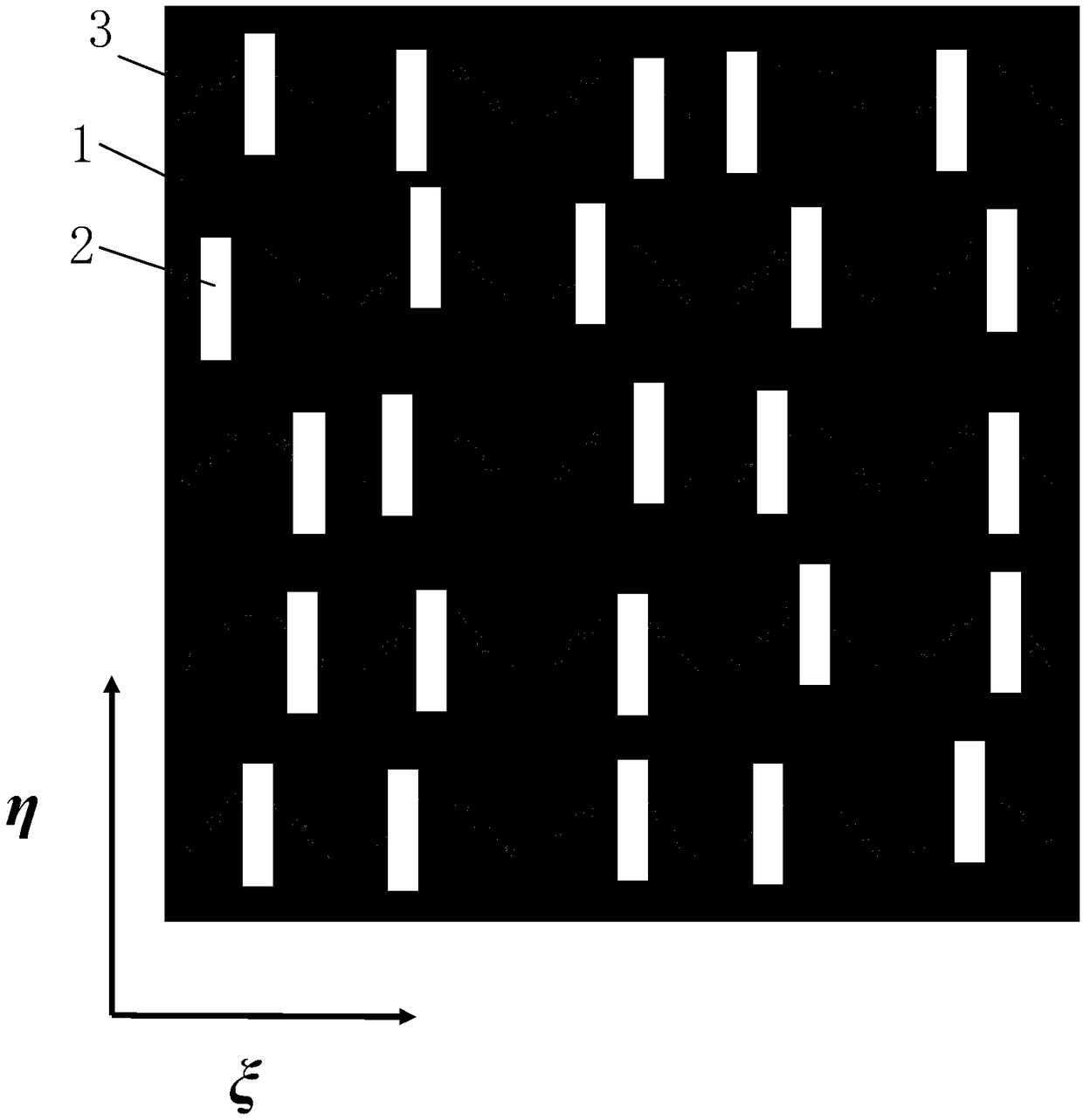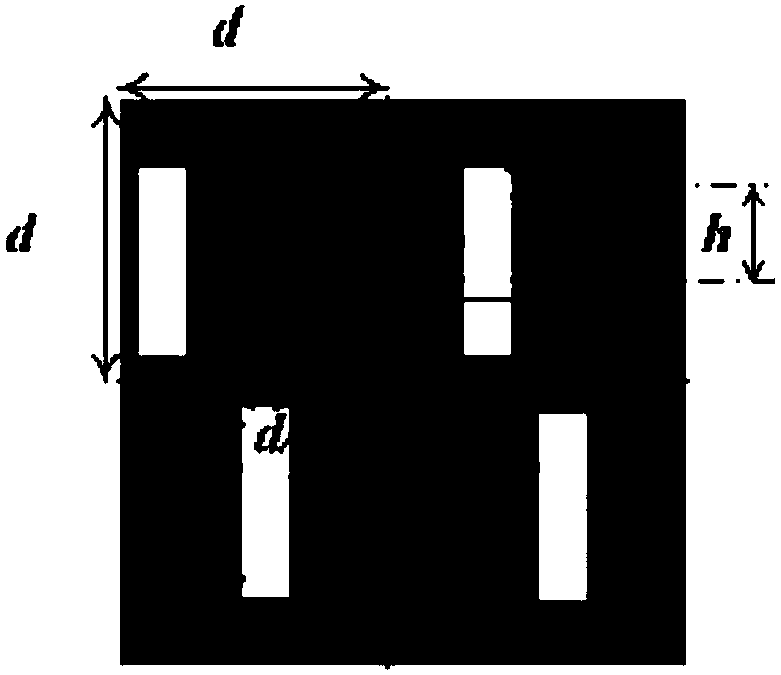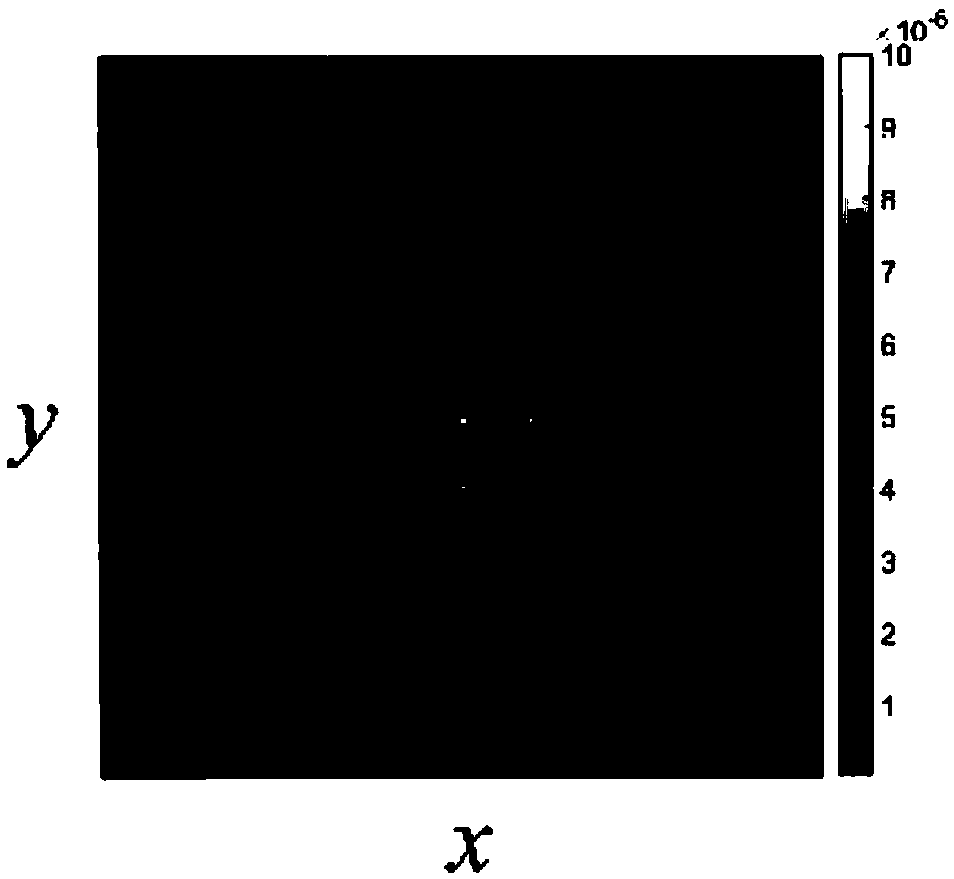High-order diffraction suppression raster of quasi-random structure
An advanced diffraction and quasi-random technology, applied in the field of diffractive optics, can solve problems such as the processing accuracy of controlled primitives and the influence of primitive processing accuracy on performance, and achieve the effect of improving the accuracy of spectral measurement
- Summary
- Abstract
- Description
- Claims
- Application Information
AI Technical Summary
Problems solved by technology
Method used
Image
Examples
Embodiment
[0034] This embodiment provides an advanced diffraction suppression grating with a quasi-random structure, refer to figure 1 and figure 2 . It includes: an opaque base 1; a plurality of polygonal primitives 2 with the same shape and area and not intersecting each other are set on the opaque base 1, and a plurality of trapezoidal regions 3 are arranged on the opaque base 1, and a plurality of trapezoidal The area 3 is arranged periodically in a square lattice, and the period of the square lattice is d. There is only one polygonal primitive 2 in each trapezoidal area 3 , and the centers of the polygonal primitives 2 are randomly distributed in the trapezoidal area 3 .
[0035] It should be noted that the embodiment of the present invention does not limit the specific structure of the polygonal primitive, which may be a regular polygon, a non-regular polygon, or a circle; the embodiment of the present invention does not limit the specific height of the trapezoidal area. See ...
PUM
| Property | Measurement | Unit |
|---|---|---|
| Bottom length | aaaaa | aaaaa |
Abstract
Description
Claims
Application Information
 Login to View More
Login to View More - R&D
- Intellectual Property
- Life Sciences
- Materials
- Tech Scout
- Unparalleled Data Quality
- Higher Quality Content
- 60% Fewer Hallucinations
Browse by: Latest US Patents, China's latest patents, Technical Efficacy Thesaurus, Application Domain, Technology Topic, Popular Technical Reports.
© 2025 PatSnap. All rights reserved.Legal|Privacy policy|Modern Slavery Act Transparency Statement|Sitemap|About US| Contact US: help@patsnap.com



